- Featured
- Asylum Seekers and Migrants
- Climate and Environmental Justice
- Disability Justice
- Economic Justice
- Education
- First Nations Justice
- Health and Medicare
- International Solidarity
- LGBTIQA+ Rights
- Media and Arts
- Occupational Health and Safety
- Public Services
- Public Transport
- Racial Justice
- Social Justice
- Women's Rights
- Workers' Rights
- More
-
Save the Victorian Disability SectorAt its heart, this campaign is about ensuring that people with disabilities—some of the most vulnerable members of our community—continue to receive the care, safety, and support they need and deserve. Without sustainable funding and clear action from governments, thousands of Victorians risk losing access to essential, life-changing services. The current funding shortfall threatens to: • Slash wages for over 7,500 workers by more than a third • Significantly reduce the 5 main providers of group homes ability to operate approximately 580 group homes • Displace even more participants from their homes • Undermine quality and safety standards that have been built over decades This is not a distant issue—it’s a looming crisis that will affect families, workers, and participants alike if action isn’t taken urgently. Victoria’s disability support sector sets the benchmark for the nation in terms of: • Staff training • Career progression • Staffing ratios • Safety standards These are hard-won protections built through decades of union advocacy. Without continued investment and a proper funding model, these standards could be lost—taking the sector backwards. Disability support workers play a critical role in the lives of participants, yet they now face: • Massive wage cuts • Job losses • A devaluing of their profession By campaigning for fair wages and strong employment conditions, you're standing up for the workforce that holds this system together. This campaign is about demanding that: • The Federal Government fixes the broken NDIS pricing model • The State Government continues support until a long-term federal solution is in place • Both levels of government take responsibility for the sustainability of disability services It’s a call to put people over profits, and policy over politics. Everyone deserves the opportunity to live with dignity, independence, and support. Your campaign represents the broader fight for: Equity in access to care • Fair treatment of workers • A compassionate, well-funded public service model This isn’t just a disability sector issue—it’s a community issue. When we unite, we win. By joining, people are not just supporting a cause—they’re becoming part of a powerful movement for justice, fairness, and sustainability in disability care.1,662 of 2,000 SignaturesCreated by Antony Dunn
-
Equal Rights Equals Respect: Stop Discrimination in Queensland workplaces nowEvery Queenslander deserves the right to work or study in a space free from harassment and discrimination. The Respect at Work laws represent a crucial step forward in creating safer, more respectful spaces for all Queenslanders – whether they are at work, university, TAFE or school. These laws were the result of extensive consultation arising from the 2020 Respect@Work Report and the 2022 Building Belonging Report. Passed by Parliament in September 2024 and scheduled to commence from 1 July this year, these reforms have now been delayed. The LNP now claims everyone wants more consultation, but we know this is simply an excuse to delay these important protections without justification. These laws include important new protections against discrimination to ensure workers cannot be sacked for extreme reasons like having fertility treatment to have a child, or because they have been a victim of family and domestic violence. They also introduce a positive duty, requiring employers to proactively prevent discrimination and harassment, rather than only responding after harm has occurred. Queenslanders cannot wait any longer. These laws need to be enacted now.2,061 of 3,000 SignaturesCreated by Queensland Unions
-
Return Northern Beaches Hospital to Public HandsWhile operated by the for-profit company Healthscope, Northern Beaches Hospital has been plagued by persistent complaints. Staff, patients, and families report chronic understaffing, poor patient outcomes and a culture that puts profits before patients. Public ownership would restore accountability, improve staffing levels and working conditions and ensure safety for patients and workers alike. Unions campaigned alongside NSW Labor in opposition to oppose the privatisation of these essential health services. Now it’s time for the Labor Government to honour their commitment and return the hospital to public hands where it belongs. Add your name today to demand a healthcare system that puts people before profit.2,154 of 3,000 Signatures
-
Justice for Kumanjayi WhiteWarlpiri people and supporters are mobilising for justice and for systemic change in response to the horrific death in custody of Kumanjayi White. These immediate demands stem from deep grievances about the conduct of the police investigation so far are an important stepping stone towards justice. Warlpiri leader Ned Hargraves explains the circumstances of Kumanjayi White's death: "The young Warlpiri man who died in police custody in Coles in Alice Springs on Tuesday May 27 is my Jaja (grandson). I am angry and frustrated that yet another one of our young men has lost his life at the hands of the police. We know that he was held down by two police until he lost consciousness and perished. But at the moment we are in the dark about what really happened. It is disgraceful that police are already putting out stories that portray my jaja as a criminal. They are trying to run him down. We demand they stop spreading stories and show some respect. Family representatives need to see all available footage of this incident immediately - both CCTV and body cam so we can understand what happened to my Jaja - but so far they are refusing to grant this. We need an investigation completely independent of police This young man was living away from his community, in town, in supported accommodation because of his disabilities and he was very vulnerable. He needed support and not to be criminalised because of his disability. What are the police doing using such force on a vulnerable young man in a supermarket? Did they even try to de-escalate? This happened on the 5th anniversary of the death of George Floyd - during Reconciliation Week - but my people have to confront another death in custody. My people are being routinely brutalised by police. We are going into jail in record numbers - men, women and children alike. We are suffering badly under the shadow of the NT Intervention and under a Country Liberal Party government in the NT that is making many racist policies against us - sending more people to jail and threatening our sacred sites. This is making racists more confident to attack us. We have put forward many solutions to improve Warlpiri relations with the justice system that continue to be ignored. The death of my Jaja needs to be a moment when we come together to fight for change. Enough is enough! We need justice!"6,072 of 7,000 Signatures
-
Save SA Public Sector PsychologyPublic psychologists provide specialist assessment and treatment to people across the lifespan. We are essential for: 1. learning assessments, determining special school placements, behavioural consultancy, and mental health support in schools 2. developmental and autism diagnostic assessments in hospitals 3. mental health assessment and treatment for children, adolescents, adults, and older persons in hospital and the community 4. psychological and neuropsychological assessment and treatment in hospitals and community settings, for physical health and rehabilitation. 5. child protection and forensic assessments for children and young people where there is suspected abuse and/or neglect 6. forensic assessments in juvenile justice and adult corrections 7. psychological support for perinatal, infant, and child and youth community health Imagine not having psychologists in the SA public sector to meet these critical needs! South Australians don't deserve to miss out on specialist care. Instead, they are being forced to go without or to access psychological assessment or treatment from the private sector which we know is unaffordable for many. Without our vital psychological services in the public sector, there will be even more pressure on the health, education, and child protection systems, and it places vulnerable children, adults, and families at further risk. There will be more children on wait lists for diagnostic assessments while missing out on important early intervention, and vulnerable adults will not have the care at the time they need it and fall into acute mental health crisis. SA cannot afford to increase ramping pressure or allow our children to fall behind. SA psychologists feel privileged and honoured to serve the public; but now we ask for your assistance and support to keep our workforce strong and thriving so that we can continue to help you in the future. Join the campaign. Sign the petition and let the SA Government know that you want them to respect psychologists and save public psychology.4,077 of 5,000 SignaturesCreated by South Australian Psychologists Association
-
Save NT Portable Long Service LeaveBecause of government funding changes, many community + disability sector workers never get to stay with one employer long enough to take long service leave. That’s why states and territories throughout Australia are legislating for portable long service leave so workers take their leave entitlements with them between employers. Northern Territory workers are about to fall behind the rest of the country because of the CLP Government. Sign the petition and stand with Australian Services Union members in calling on the NT Government to save Portable Long Service Leave.218 of 300 SignaturesCreated by ASU SA+NT Branch
-
Take The StandSurvivors of rape and sexual assault participate in the criminal justice system of their own free will. The system would collapse in regards to sexual crimes, without their voluntary involvement. Many do so at great personal cost. When they take the stand, they do it to keep us, the community safe. Now it’s our turn to take a stand for them and demand a criminal justice system that does not further injure those who enter it.7,438 of 8,000 SignaturesCreated by Nina Funnell
-
Safe Arts and Entertainment For ALLWe’re urgently calling on our Arts and Entertainment industry to make shows safe and accessible for everyone. Getting infected with Covid can have dire and incurable consequences for anyone, but especially for the most vulnerable in our communities. As an industry whose work predominantly occurs indoors and in crowded spaces, accessing Arts and Entertainment is currently a high risk activity. This has seen many people decrease the amount of shows they attend or stop attending shows altogether. Alongside this, the constant circulation of Covid and other respiratory viruses has seen a rise in audiences buying tickets last minute because they’re not sure if they’ll be well enough to attend on the day. It doesn’t have to be this way. Having a good night out at a show shouldn’t have to happen at the risk of our health and, for many, our lives. Keeping the industry open shouldn’t have to happen at the risk of the industry’s sustainability and security. We have the tools to provide communities with safe and accessible Arts and Entertainment. These tools include, but are not limited to: • Effective air filtration at venues • Mask mandatory performances • Ticket exchange flexibility where appropriate • Better communication regarding keeping each other safe and; • Continuing commitment to online programming We ask that producers and venues meet with us to discuss how we can use these tools and others to ensure the industry is accessible and safe for everyone so that it can flourish in a secure and sustainable way.1,002 of 2,000 SignaturesCreated by Jenna Schroder
-
Save our UQ CommunitySince 1961, the UQ Union Complex has served as the heart of UQ's campus community at St Lucia. Over the decades, its activities have profoundly influenced Queensland's culture and politics and hold significant historical importance. Therefore, it has always been in the community's interest to preserve and maintain the space with interior refurbishments rather than a complete transformation, which has been repeatedly proposed. Regrettably, when such repair and maintenance requests have been submitted by the UQ Union, UQ has been slow to respond or ignore the request, resulting in the exacerbation of building damage. When they do take place, they take an unacceptably long time to fix the problem (for example, the Schonell theatre). So, it is no surprise that since 2018, UQ's agenda has focused more on its interest in redeveloping the Union Complex primarily to enhance its aesthetics. Their initial attempt, likened to building a 'shopping mall' on campus, was widely criticised in 2022, leading to an announcement that they would return to 'first principles'. However, their new proposal has not undergone a comprehensive consultation process with the community. There has been a complete lack of transparency regarding the final design and the redevelopment process. Meanwhile, UQ seeks to finalise agreements through the UQ Union, insisting on maintaining confidentiality without engaging in broader consultation with the UQ and Brisbane community. What we know: UQ has been dictating space allocation within the Union Complex, which will reduce the amount of space given to our community-owned outlets. This will have a detrimental effect on the vibrant campus culture these establishments help maintain. The finalized redevelopment plans could potentially disrupt or even lead to the discontinuation of beloved establishments such as Reddo Bar, the Food Co-op shop, On a Roll bakery, and the Main Course. Furthermore, there is no provision for a full commercial kitchen to allow Kampus Kitchen to continue at its current capacity. Again, these decisions have been made without consulting the broader community, further underscoring the need for transparency and inclusive consultation. It is evident that UQ has a new vision for the future of the student commons and Union complex that appears to exclude any input from the community. Their vision risks erasing the culture and legacy of the original complex and disregarding aspects that symbolise the freedom of student expression. Moreover, it threatens to dismantle what remains of the Union Complex's role as a central hub for cultural and arts activities, including previously housing a radio station that once made it the heart of the University of Queensland.1,151 of 2,000 SignaturesCreated by UQ Community
-
Child Protection in CrisisStatutory Child Protection is in crisis. More children are at risk of harm for longer, more children are being put on orders and in out of home care. Most reports and complaints are not looked at and early intervention opportunities are missed until it is too late requiring more damaging interventions. Foster and Out of Home Care options are minimal with many jurisdictions relying on expensive private providers to house children in motels and offices with limited access to wrap around services, placing the development of children at risk. Our state child protection services are buckling due to not enough staffing and the inability to fill case workers and other positions with adequately trained social workers and psychologists. This problem lies across all jurisdictions and requires sustained national action.11 of 100 SignaturesCreated by Public Service Association
-
SSAF is for Students!Student Services and Amenities Fees (SSAF) at the University of Tasmania sees 81% of its funding placed into University ran departments. The current allocation of SSAF funding into University departments does not reflect the notions of Student Services and Amenities fees, being controlled by those who pay for them. We therefore call on the University to ensure at least 51% of SSAF Funding is allocated to the student association as the association that represents all students at the University of Tasmania.556 of 600 SignaturesCreated by TUSA State Council
-
Save Gannawarra Shire Council Community Services!Council-run in-home aged care and NDIS services enables those in need to live independently at home. Being able to retain a sense of independence is so important for mental and emotional health. Our vulnerable relatives, friends and neighbours deserve to retain the quality care they get from highly trained council workers. In-home aged care delivered by local government is a hugely valued service. These workers are highly trained, on permanent jobs and liveable wages, who provide care second to none. Their employment conditions mean clients get the kind of continuity of care they asked for during the Royal Commission into Aged Care Quality & Safety. Council’s direct delivery of this vital community service protects our vulnerable and older residents in their homes. Victorian local government has a proud history of leading the country in delivering quality services into homes in this area and it must be maintained. Any moves to cease direct delivery of this service and allow a private provider/s to deliver the service would have the following consequences: ▪ Reduced provision, lower quality and consistency of care to clients; ▪ Displacement of workers in secure, well paid, well supervised work within your local community; ▪ No minimum qualification requirements, where vulnerable clients will be forced to allow potentially untrained providers into their homes, leaving them significantly vulnerable to abuse; ▪ Loss of a holistic assessment client needs and coordinated or escalated service delivery or referral to match the changing needs of clients; ▪ Loss of integrated services due to lack of participation of private providers in local partnerships, networks and alliances.144 of 200 SignaturesCreated by Australian Services Union Vic Tas



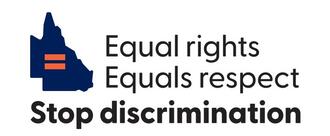

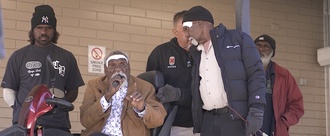

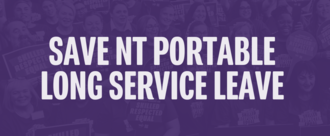.png)
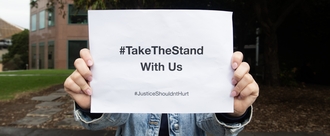

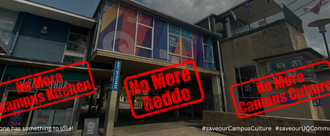
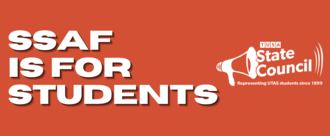.png)
